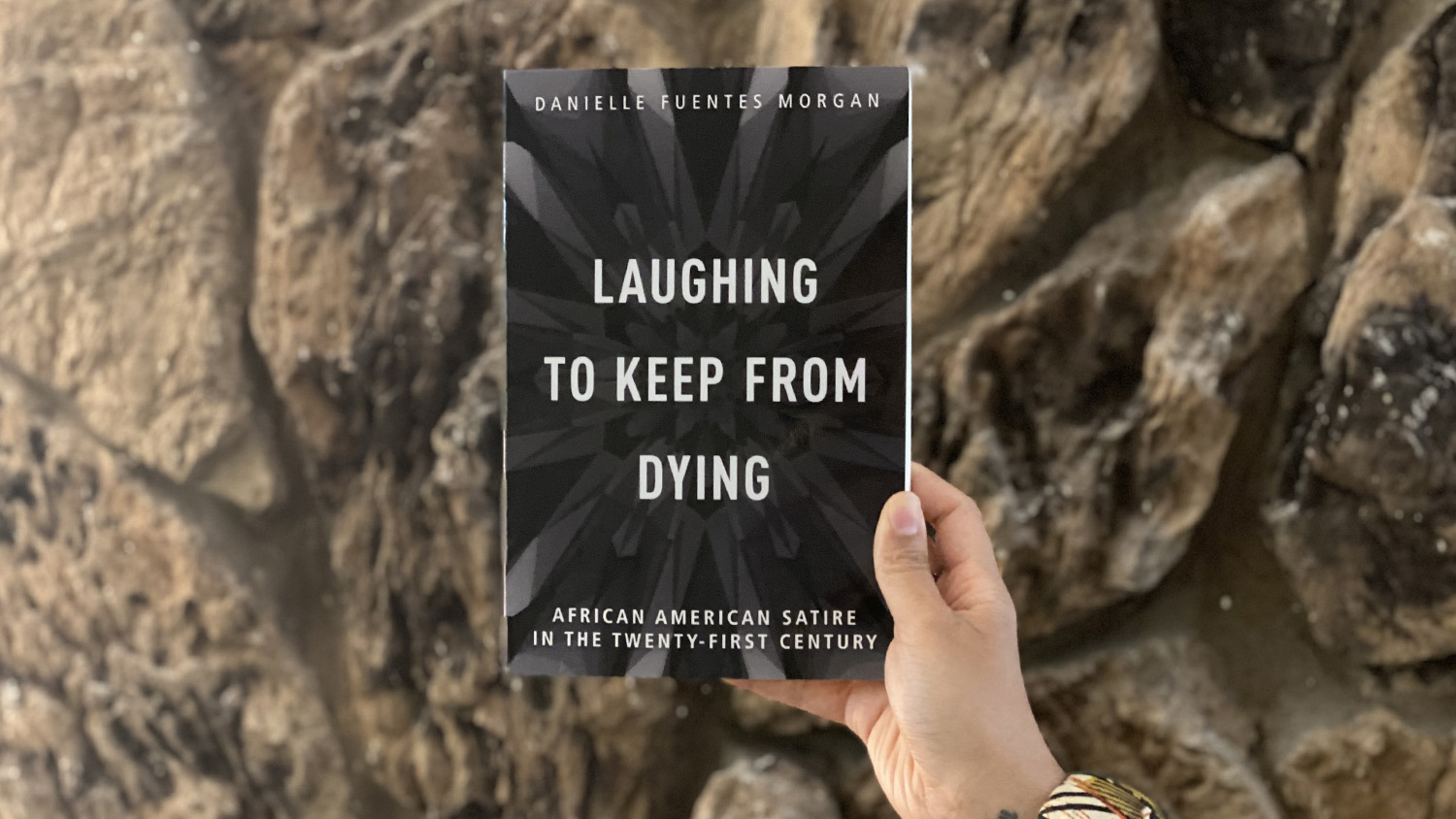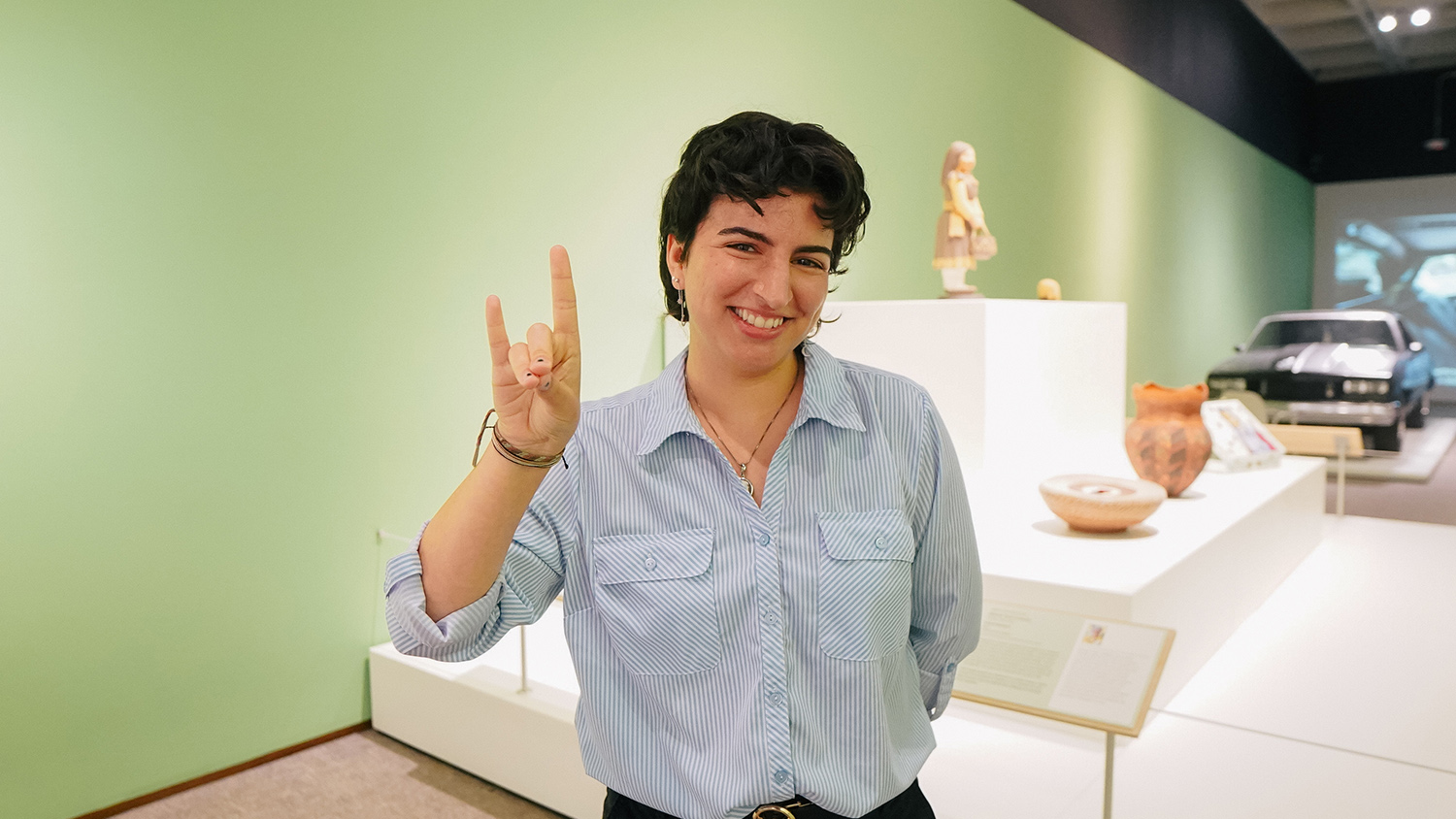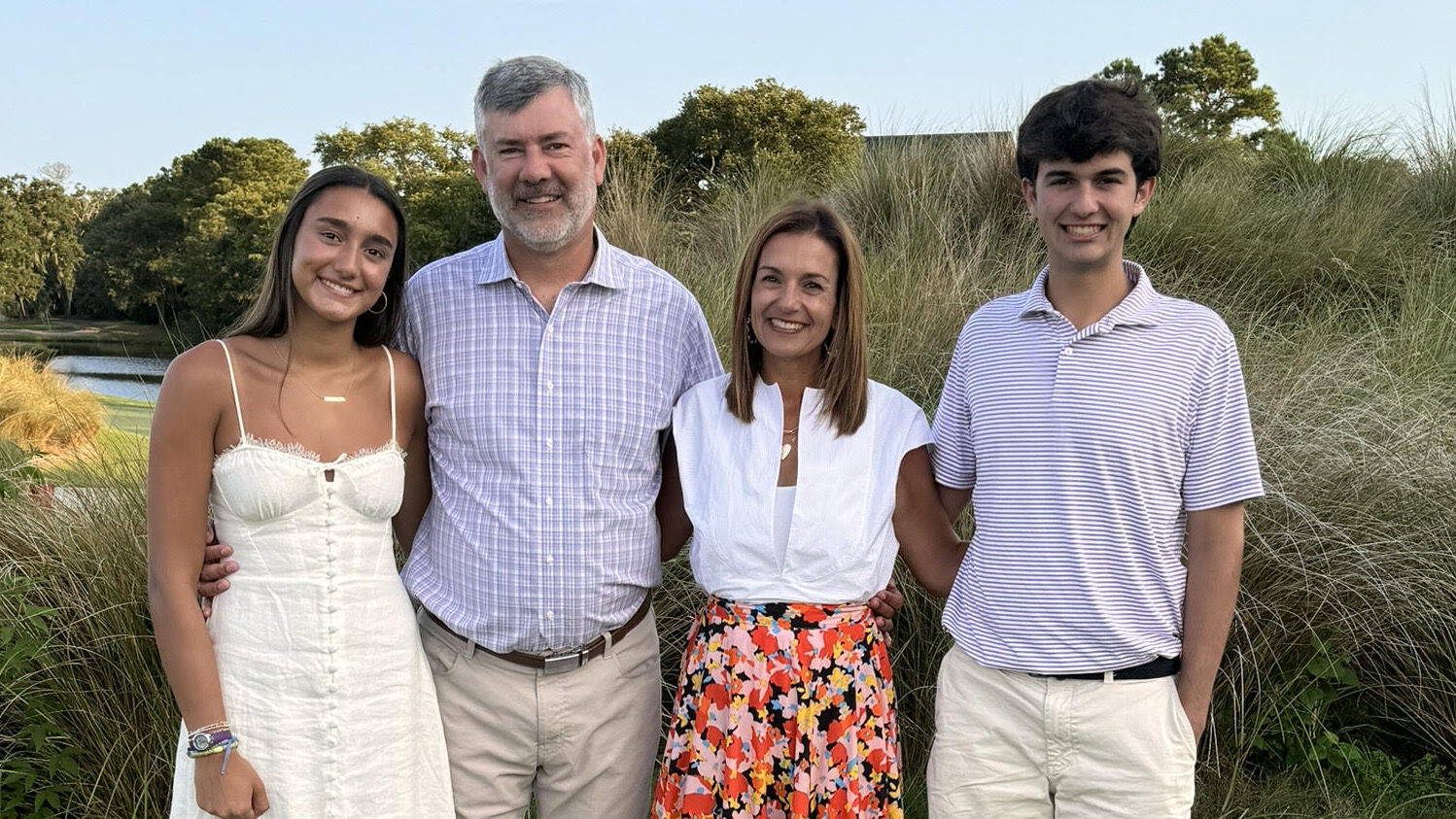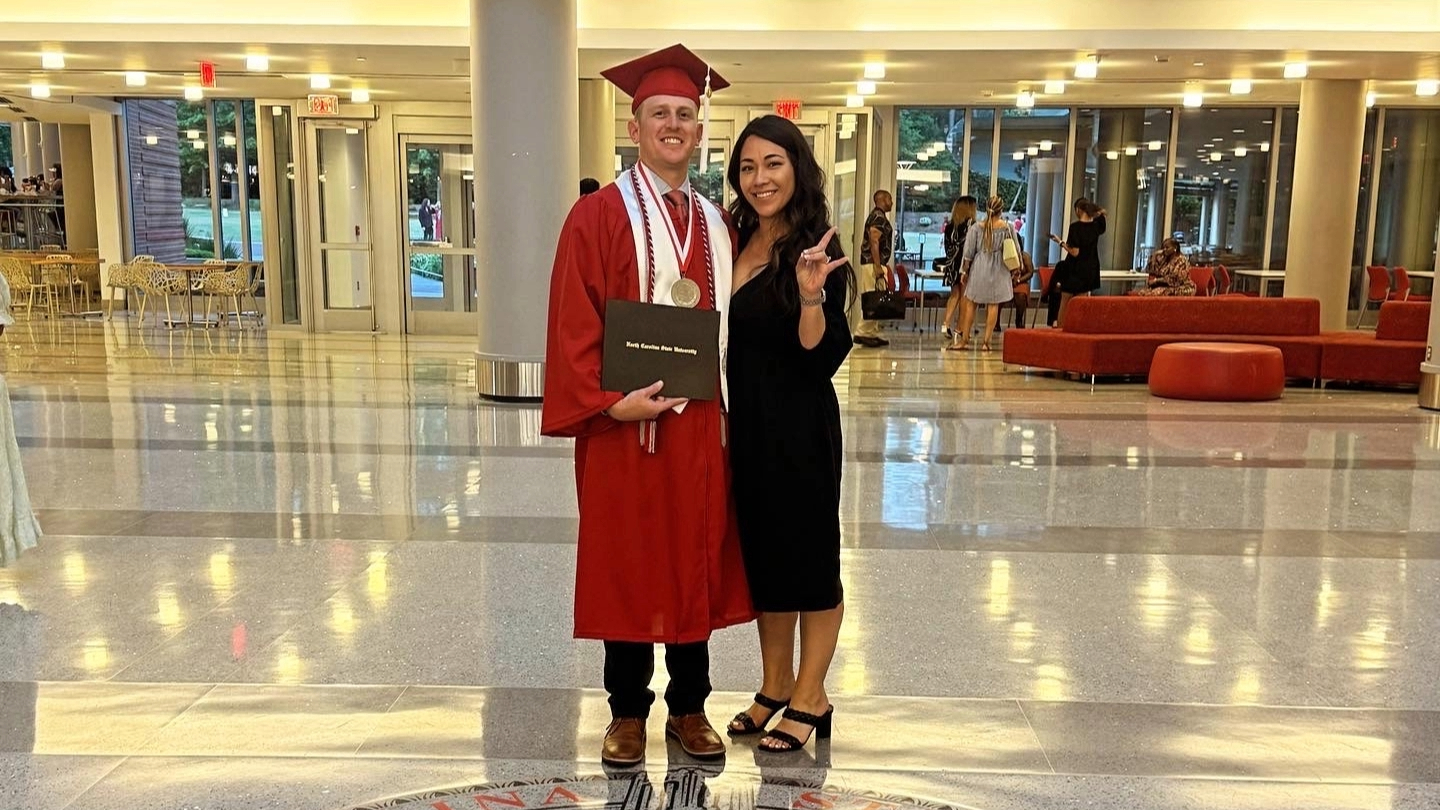Danielle Fuentes Morgan graduated from NC State’s Department of English with a master’s degree in 2011. She’s currently an assistant professor at Santa Clara University and specializes in African American literature in the 20th and 21st centuries.
Her debut book Laughing to Keep from Dying explores the satirical treatment of race and racialization across today’s African American culture. We caught up with Morgan to learn more about her in-depth research, love of comedy and time on campus.
What motivated you to write Laughing to Keep from Dying?
I started this project thinking about real-life implications of comedy and how we might connect the historical uses of African American satire — what has been called by Langston Hughes and others “laughing to keep from crying” — to this contemporary moment and the new stakes of satire, or “laughing to keep from dying.” Satire is a critical mode of survival because when you are disempowered, it offers a way to speak truth to power safely. But the stakes, the risks and the rewards of African American satire have changed, certainly from the 18th and 19th centuries to today. My book examines what African American satire is doing in this specific moment, how it connects us to our history and what new worlds it opens for us today. Honestly, African American satire has always been present in African American literary and cultural traditions, but the current sociopolitical upheaval of the 21st century made analyzing this critical realm of resistance and protest feel particularly necessary.
What kind of research did you do for this book?
Despite being concerned with the 21st century, I actually did quite a bit of historical research to understand the trajectory of African American satire and to offer context for how it repeats and rhymes today. I did archival research on blackface and minstrelsy at the Schomburg Center for Research in Black Culture in Harlem. Later, I explored the Smithsonian National Museum of African American History and Culture in Washington, which allowed me to think about what we are memorializing today and how we are thinking about history in the present moment. In terms of contemporary research, I read and re-read — and watched and re-watched — a number of satiric texts and films and paid attention to trends and responses. People often ask if that means I watched a bunch of hilarious stand-up comedy — and yes, I absolutely did!
I spent a good bit of time laughing, to be sure, but it wasn’t just fun and games. I had to connect those contemporary laugh-out-loud moments to those dangerously satiric moments in the past that were sometimes hidden, sometimes couched in plausible deniability for safety. I also read a number of texts by scholars who are working in the field of African American satire right now — Darryl Dickson-Carr, Derek Maus, Daphne Brooks, Glenda Carpio, Bambi Haggins, Mel Watkins and others. When you do work that’s about the 21st century, you want to make sure you’ve considered as many angles as possible. It’s tricky to chronicle a moment while it’s happening, so having multiple avenues for approaching the material is critical.
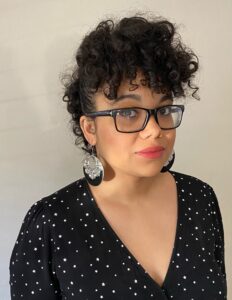
What got you interested in African American satire?
When I was a kid, my uncle Kevin used to show me videos of the best of Eddie Murphy (always fast forwarding through whatever was inappropriate for my age). Afterwards, we’d talk about the subtext and context of the jokes. Looking back, I can’t believe he took that sort of time with me to explain the jokes and their set up and was also interested in listening to my take! So, because of him, I’ve always had a sort of personal connection to comedy and satire and to thinking about how it makes us feel in private and what sort of application that might have in our public lives.
Years later, I read Erasure by Percival Everett in African American Literature with Sheila Smith McKoy at NC State, and I just so happened to be assigned a group presentation on that book. I was blown away by Everett’s complicated narrative and that the plot sort of foreclosed any singular conclusion. The ending was ambiguous, but satisfying. That’s so hard to do! I went off for my Ph.D. planning to study Black masculinity with Erasure as a primary text, but I kept coming back to how funny and absurd the novel is in its depiction of Black masculinity and how incisively it captures the feeling of being the racialized other. By then it was clear — satire had me hooked.
How has your NC State degree impacted your career?
NC State offered my first opportunity to really delve into independent research. The expansiveness of the capstone project really crystallized for me the fact that as literary critics we don’t have to answer all of the questions. We need to create the language and gain the foresight to ask the questions. Additionally, at NC State I got to learn from people who were unabashed in their love of literature. It reminded me that even when the research process gets tedious or overwhelming to never lose sight of the joy — not only the joy of reading but the joy of writing and contributing to these ongoing conversations about the literature itself.
What was your favorite class at NC State?
I was so fortunate to take so many courses with professors who were kind but rigorous and who shared their love of literature. Those professors absolutely shaped my pedagogy as a professor today. I immediately think of Thomas Lisk’s 20th Century American Poetry, Sheila Smith McKoy’s African American Literature, Elaine Orr’s African Short Stories, and an independent study I took with Jason Miller, 20th Century African American Novels. I’m grateful for them.
Do you have a favorite comedian?
I have too many favorite comedians! Eddie Murphy is my all-time favorite. If I could only watch one person’s catalogue ever again, it’d be his. Talking about him with my uncle way back when I was a kid were foundational moments of my childhood that subconsciously set me on the path of humor studies. I also love Wanda Sykes — she deserves all the things! I think W. Kamau Bell, Issa Rae, Ali Wong, John Mulaney, Patton Oswalt, Paul F. Tompkins and Maya Rudolph are also brilliant and hilarious.
What book might people be surprised to find on your shelves?
Probably Nobody Likes You: Inside the Turbulent Life, Times, and Music of Green Day. People are always surprised to learn that I’m a Green Day superfan, but they’ve been my favorite band for more than 27 years now. Marc Spitz writes a really compelling historical overview and analysis of their continued significance. I’ve also started reading There But for Fortune: The Life of Phil Ochs by Michael Schumacher. I’m really interested in biographies of musicians when I have the time to do reading that isn’t related to my work (which isn’t often anymore).
You’re organizing a literary dinner party. Which three writers, dead or alive, do you invite?
I’d invite James Baldwin, Zora Neale Hurston and Lorraine Hansberry. Those are three of my literary idols. I write at a desk with Hurston and Baldwin’s photos looking over my shoulders to help keep me focused and on track. And Baldwin and Hansberry already knew each other — Baldwin called her “Sweet Lorraine” — so it’d be lovely to orchestrate that reunion, particularly as Hansberry died so young at only 34. I’d be thrilled to sit quietly and learn from them and hear what they think about the 21st century.
What’s next for you?
What’s next for me is whatever’s next for African American satire. I’m really struck, for example, by the way Jordan Peele’s satirical insights have changed in tone over the past decade, and I’m interested to see how others are meeting this sort of strange moment in history. What directions will satirists move when the stakes have already shifted? How do you satirize our society when the world already seems so self-satirizing? How do you underscore the absurdity of fiction when reality is so absurd? I look forward to finding out.
- Categories:
